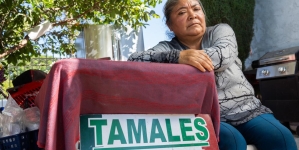-
Astronomer CEO Andy Byron Placed on Leave After Video at Coldplay Concert Exposes Alleged Affair - 4 hours ago
-
Blood in the Streets and Death in the Air: Residents Survey Damage in Syrian City - 2 days ago
-
Army vet calls for investigation after being detained for three days in ICE raid - July 17, 2025
-
Tariffs Push Up Prices, and the Supreme Court’s ‘Shadow Docket’ - July 16, 2025
-
ICE arrested her selling tamales at Lowes. Then she suffered a heart attack. ‘I told them: I can’t breathe’ - July 14, 2025
-
The Royal Box: Who’s in Wimbledon’s Most Exclusive Seats? - July 13, 2025
-
David Gergen, Adviser to Presidents and Political Commentator, Dies at 83 - July 12, 2025
-
Federal judge temporarily halts alleged indiscriminate immigration stops - July 12, 2025
-
Coal, the Last Survivor of Canada’s Parliament Hill Cat Colony, Dies - July 10, 2025
-
As Truth Social Business Struggles, Trump Media Goes Big on Crypto - July 9, 2025
Vermont Becomes Latest State to Propose Wealth Taxes
Still, when it comes to taxes, the biggest frustration many Americans have is the sense that the wealthiest aren’t paying their fair share: 82 percent of respondents in an April 2023 Pew Research poll said it bothered them, including 60 percent who said it bothered them “a lot.”
Some of the ultrawealthy agree: More than 250 billionaires and millionaires, including heirs to the Rockefeller and Disney fortunes, recently signed an open letter, coinciding with the World Economic Forum in Davos, Switzerland, that urged world leaders to tax them more.
The vast majority of state and local tax systems taken as a whole, including property, sales and excise taxes as well as income tax, are regressive, and the poorest 20 percent of taxpayers pay effective tax rates that are nearly 60 percent higher than those paid by the top 1 percent of households, according to new research from the Institute on Taxation and Economic Policy, a nonpartisan research organization that equates fairness with a progressive tax system.
So far in 2024, lawmakers in 10 states have introduced wealth-tax bills or are working on introducing them, according to Amber Wallin, senior policy and outreach director at the State Revenue Alliance. They are California, Connecticut, Hawaii, Maryland, Minnesota, Nevada, New York, Pennsylvania, Vermont and Washington.
No states currently assess any taxes on a living individual’s net worth or unrealized capital gains. If Vermont’s bill were to become law, it would basically do that, Ms. Kornheiser explained: Someone whose assets, after exemptions, started the year worth $10 million and finished the year worth $11 million, for example, would have $1 million in unrealized gains that would be counted as income, and therefore subject to Vermont’s top income tax rate of 8.75 percent, even though nothing was sold and the gains were all on paper.
Source link







